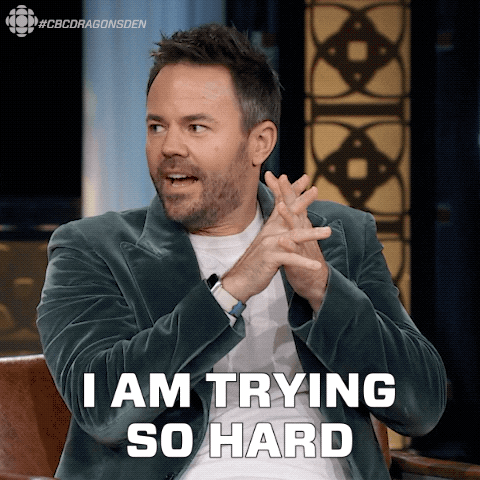- Empalingua
- Posts
- How long does it Really take to learn a language?
How long does it Really take to learn a language?
Let me tell you like it is!

Whenever I get a new student request to learn one of the languages I tutor (Spanish & English), I always want to know why the person is seeking tutoring as well as their goals and expectations. I ask a series of questions to get to know how much experience they have with the language and try to set up a first lesson which also serves as an evaluation.
Then every once in a while, one of these students will ask me the highly controversial question: “How long will it take me to learn that language?” I often think that there are many people out there who truly believe that learning a language is like learning AI or any other program that could take weeks, a few months, or at the very most, one year…

Gif by cbc on Giphy
Unfortunately, I hate to burst some of your bubbles, but I am here to say that learning a language well (with correct grammar and fluency) is nothing short of a long game. Think about it: How long did it take you to learn your native language?
But why is is taking so long?

Source: Color Oasis
Learning a language may seem like it is going at a snail’s pace. The truth is that it takes a while; it really does. However long that while is does however depend on the amount of work you put into it.
What can I do to speed up my language learning?
Lucky for you, we live in a highly advanced technological age. There are excellent free and paid language learning apps that you can find to help you with your learning.
One I have personally used is called “Language Reactor”. You simply install it on your browser and anything you watch, including Netflix and YouTube will be shown in both your target language (the language you want to learn) and your native language. It has several features where you can stop, click on a word, and translate it, among many others.
When I was learning Spanish in Argentina in the 90s, I would watch telenovelas (soap operas) and other series on TV. The benefit of watching these types of programs is that the language is conversational and repetitive, which allows a learner to learning the language in a more holistic way.
Many will agree that the best way to learn a language is to travel or even move to a location where that language is spoken. There is no substitute for immersion which gets you swimming in the language from Day 1.
Another way to learn a language is to do language exchanges on sites like ConversationExchange. I have used this site myself in preparation for learning the Spanish “paisa” dialect used in Medellin, Colombia and to find a language partner in Brazil since I study Portuguese regularly. We simply teach each other our languages for free. In my case, I end up making lasting friends along the way. That’s definitely an extra benefit!
Finally, if you really want to learn a language well, seek out a good language tutor. Look for someone you feel at ease with, one who teaches you in a way that you can understand and learn effectively. That is why I started Empalingua, “where empathy meets tutoring”. I wanted to create an empathy-based philosophy where students feel understood and cared for. Most of our business comes from Word of Mouth / referrals, so we must be doing something right:)
Wishing you much success on your language journey!
Kimberlee❤️
Want more info? |
*Set up a free discovery call to see if our services are a good fit for you:) |
Or write us at [email protected] |
US number: (956) 277-2337 |
Mexican WhatsApp: +523329450349 |
#tutoring #languageservices #translation #spanish #esl #accent reduction #portuguese |


